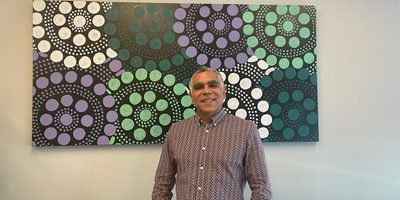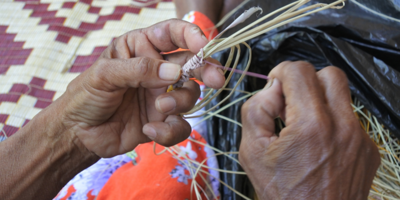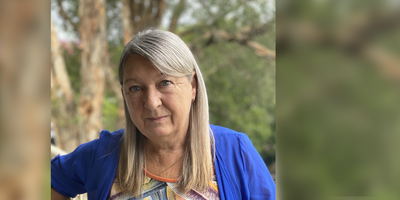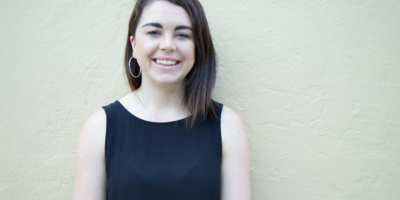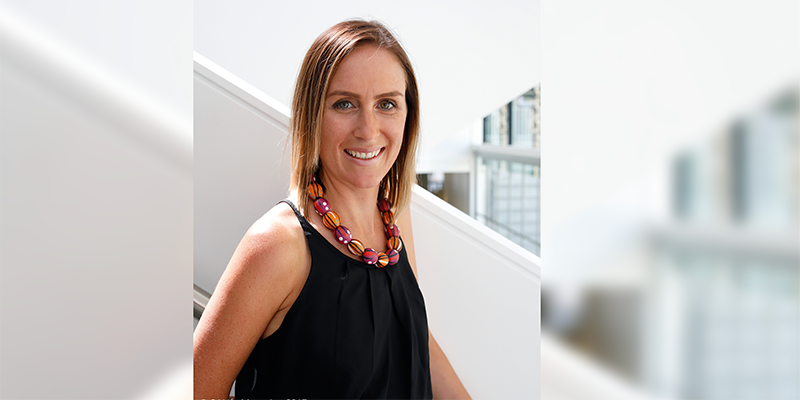
Meet Courtney Ryder, PhD Candidate, Aboriginal and Torres Strait Islander Health Program
Improving the health of Aboriginal and Torres Strait Islander populations is a major priority for The George Institute for Global Health. Our Aboriginal and Torres Strait Islander Health Program at The George Institute drives meaningful and ethical research and advocacy to transform the health and wellbeing of First Nations peoples and communities.
To celebrate NAIDOC week, we profiled George Institute Aboriginal researchers and asked them to tell us what motivated them to work in health research, what they are currently working on and what “always was, always will be” means to them.
Courtney Ryder is a PhD Candidate at The George Institute and Senior Lecturer at Flinders University. Reflecting on her childhood growing up in rural South Australia, Courtney explains that it was her family’s experiences in the healthcare system that piqued her interest in health.
“When I was younger, I was always in and out of hospital with family and I remember telling my Mum after we had lost another family member, that I hated hospitals because people just go there to die.”
Diabetes was quite a big problem in her family and so were limb amputations.
“I grew up wanting to make prosthetics for my family, especially for my Nanna who lost a leg from diabetes. I wanted to make leg prosthetics for mob who lost legs due to diabetes so they could walk again.”
While that didn’t eventuate, Courtney knew from these experiences that she always wanted to work in Aboriginal and Torres Strait Islander health. Qualifying with a biomedical engineering degree, and completing a minor stint in the corporate world, Courtney returned to academia and started teaching Aboriginal and Torres Strait Islander Health to a range of health professionals. This led her to starting her PhD at The George Institute working on the Coolamon study.
Her PhD focuses on health inequities impacting Aboriginal and Torres Strait Islander children who’ve had a burn injury. This includes understanding the overall profile of burns for Aboriginal and Torres Strait Islander children, through to factors that contribute to longer hospital length of stay, to the impact of out-of-pocket healthcare expenditure on families and having to leave family and community for long periods of time.
For Courtney, “always was, always will be” is the recognition of sovereignty and self-determination.
“Always was, always were here, and always will be as well, you can’t break that, and you can’t change that connection,” she said.
Courtney believes that the biggest barrier to achieving equitable health for Aboriginal and Torres Strait Islander peoples in Australia, is institutional racism.
“I’m talking about the real ingrained, institutional racism that allows the unacknowledged, dominate knowledge systems, and perpetuates a one-size-fits all approach,” explains Courtney.
“There need to be radical changes in these systems to allow voices to be heard, and take on board things like cultural safety, not just on an individual health practitioner level but also on an overall institutional level as well.”
The Aboriginal and Torres Strait Islander Health Program at The George Institute has led the implementation of organisational changes to create a culturally safe working environment for Aboriginal and Torres Strait Islander staff and students, and to build cultural capability in others.
This has included the introduction of cultural competency training, Indigenous research methodologies training and the production of an appropriate terminology guide. An Internal Research Committee for Aboriginal and Torres Strait Islander Health Research also helps to support and guide culturally appropriate research practice in Aboriginal and Torres Strait Islander health research and to foster collaboration.
Learn more about The George Institute’s Aboriginal and Torres Strait Islander Program here.


